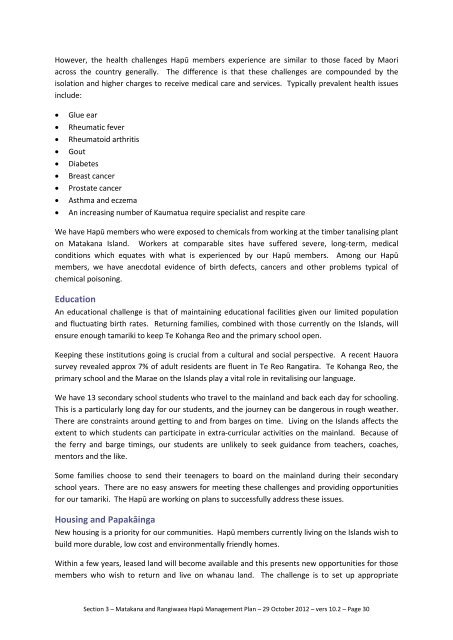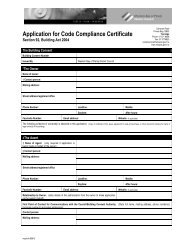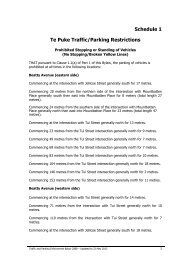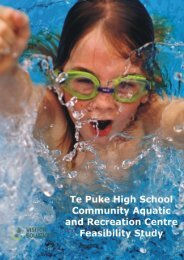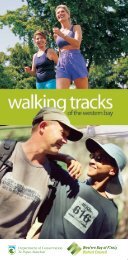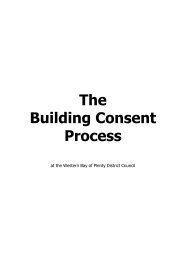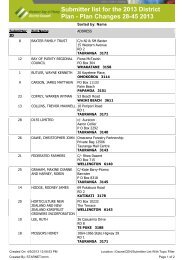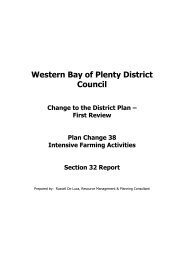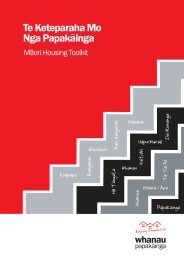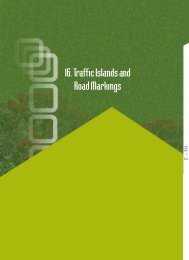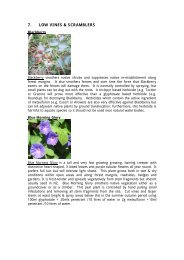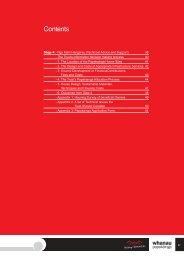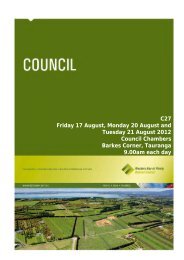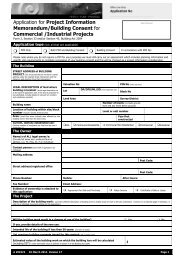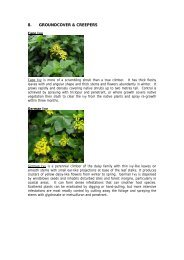Harakeke, Pingao, Kawakawa, Karamu These taonga plants have ...
Harakeke, Pingao, Kawakawa, Karamu These taonga plants have ...
Harakeke, Pingao, Kawakawa, Karamu These taonga plants have ...
You also want an ePaper? Increase the reach of your titles
YUMPU automatically turns print PDFs into web optimized ePapers that Google loves.
However, the health challenges Hapū members experience are similar to those faced by Maori<br />
across the country generally. The difference is that these challenges are compounded by the<br />
isolation and higher charges to receive medical care and services. Typically prevalent health issues<br />
include:<br />
• Glue ear<br />
• Rheumatic fever<br />
• Rheumatoid arthritis<br />
• Gout<br />
• Diabetes<br />
• Breast cancer<br />
• Prostate cancer<br />
• Asthma and eczema<br />
• An increasing number of Kaumatua require specialist and respite care<br />
We <strong>have</strong> Hapū members who were exposed to chemicals from working at the timber tanalising plant<br />
on Matakana Island. Workers at comparable sites <strong>have</strong> suffered severe, long-term, medical<br />
conditions which equates with what is experienced by our Hapū members. Among our Hapū<br />
members, we <strong>have</strong> anecdotal evidence of birth defects, cancers and other problems typical of<br />
chemical poisoning.<br />
Education<br />
An educational challenge is that of maintaining educational facilities given our limited population<br />
and fluctuating birth rates. Returning families, combined with those currently on the Islands, will<br />
ensure enough tamariki to keep Te Kohanga Reo and the primary school open.<br />
Keeping these institutions going is crucial from a cultural and social perspective. A recent Hauora<br />
survey revealed approx 7% of adult residents are fluent in Te Reo Rangatira. Te Kohanga Reo, the<br />
primary school and the Marae on the Islands play a vital role in revitalising our language.<br />
We <strong>have</strong> 13 secondary school students who travel to the mainland and back each day for schooling.<br />
This is a particularly long day for our students, and the journey can be dangerous in rough weather.<br />
There are constraints around getting to and from barges on time. Living on the Islands affects the<br />
extent to which students can participate in extra-curricular activities on the mainland. Because of<br />
the ferry and barge timings, our students are unlikely to seek guidance from teachers, coaches,<br />
mentors and the like.<br />
Some families choose to send their teenagers to board on the mainland during their secondary<br />
school years. There are no easy answers for meeting these challenges and providing opportunities<br />
for our tamariki. The Hapū are working on plans to successfully address these issues.<br />
Housing and Papakāinga<br />
New housing is a priority for our communities. Hapū members currently living on the Islands wish to<br />
build more durable, low cost and environmentally friendly homes.<br />
Within a few years, leased land will become available and this presents new opportunities for those<br />
members who wish to return and live on whanau land. The challenge is to set up appropriate<br />
Section 3 – Matakana and Rangiwaea Hapū Management Plan – 29 October 2012 – vers 10.2 – Page 30


